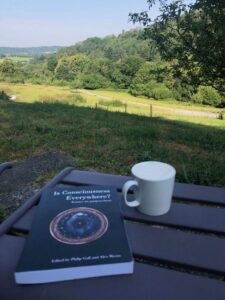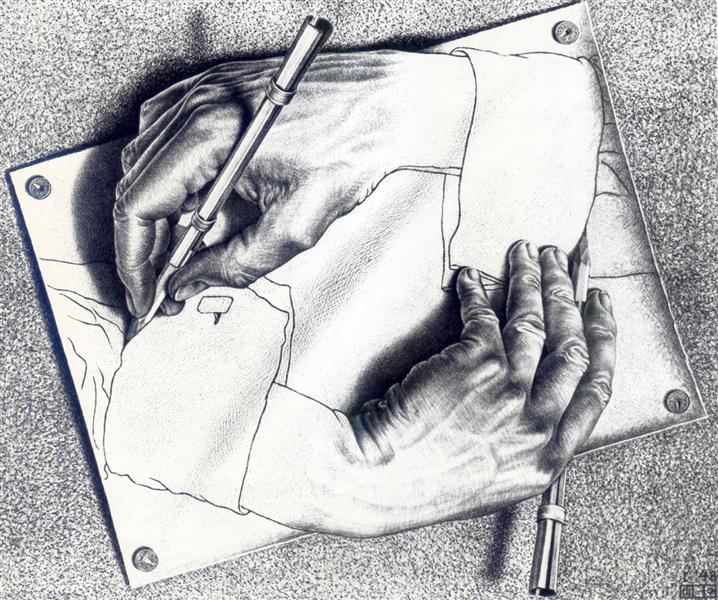If you’ve been following this blog over the past few years you will have witnessed how much more central writing has become in my life path and my work as therapist and educator. It’s come to a kind of a “peak” with the publication of my first book this summer. And I’ve shared previously how it’s not just the joy of producing (and sharing my experiences in the hope of benefitting others) but also the process it takes me through.
Perhaps the first time I really took in how much writing “heals” was during the final stages of my Masters research. During that time, an immersion into the research methodology of heuristics, I was turning myself inside-out; or as they methodology invites, opening to the “free fall” necessary. It was painful AND healing. A text that really supported me during that time was Robert Romanyshyn’s “The wounded researcher”. A Jungian, Romanyshyn used the idea of the wounded healer to base his proposal that research is re-search: rather than us coming up with an idea, the topic finds us; the topic that we need to re-member (to regain embodiment) seeks us out to fulfil something on the journey back to wholeness.
 In the last couple of posts I have shared some of my recent Ngondro experiences. My bodymind continues to integrate and re-member what needs to be discovered. Those posts were part of that unfolding and folding (I often think of it like kneading dough, stretching & folding everything back in). I had to articulate my bodymind onto the page for something to be re-membered. It reminds me so much of Gendlin’s practice of Focusing and the need to “carry forward” (as Fiona Parr, Focusing teacher explains)…
In the last couple of posts I have shared some of my recent Ngondro experiences. My bodymind continues to integrate and re-member what needs to be discovered. Those posts were part of that unfolding and folding (I often think of it like kneading dough, stretching & folding everything back in). I had to articulate my bodymind onto the page for something to be re-membered. It reminds me so much of Gendlin’s practice of Focusing and the need to “carry forward” (as Fiona Parr, Focusing teacher explains)…
“the unblocking and forward movement, or impulse of change that happens when you Focus. The body has natural capacity to heal, as we see when a skin wound heals over, or broken bones knit together. And what was ‘stopped’ in your psyche, perhaps when something that needed to happen, didn’t happen, has the potential to complete what was missing, to heal, carry forward, and resolve the stuck place”.
I used Focusing a lot during my Masters, as it parallels a process in heuristic writing; to call up tacit knowing, making the implicit, explicit.
To borrow some terminology from the enneagram for a moment. As an enneatype Six, I relate very strongly to my Five “wing”: an aspect of my psyche that revels in systems and “making sense” of what are seemingly, disparate parts. Maybe it also explains why I am a Gestalt therapist: seeing patterns, linking them. A deep thinker, a contemplative.
 And so last week was a dream time for me: a few days away in my home away from home, Normandy, accompanied by a pile of philosophy books – the aim of this “retreat” was to get my head around (literally) the material I hope to present as part of a new module on our MSc psychotherapy programme. Immersing myself in the metaphysical writing of the likes of Owen Flanagan, Philip Goff, Bernado Kastrup, Annaka Harris, Iain McGilchrist to name but a few (I took a lot of books!), I was in my element: soul food for my bodymind. I’ll devote more time to the contents of these writers work another time; but for now, I simply have the wish to share how immersing myself in the philosophy, thinking of these ideas ALONGSIDE recent experiences, AND the support of nature of the present moment all played their part in a “carrying forward”. Back to Parr…
And so last week was a dream time for me: a few days away in my home away from home, Normandy, accompanied by a pile of philosophy books – the aim of this “retreat” was to get my head around (literally) the material I hope to present as part of a new module on our MSc psychotherapy programme. Immersing myself in the metaphysical writing of the likes of Owen Flanagan, Philip Goff, Bernado Kastrup, Annaka Harris, Iain McGilchrist to name but a few (I took a lot of books!), I was in my element: soul food for my bodymind. I’ll devote more time to the contents of these writers work another time; but for now, I simply have the wish to share how immersing myself in the philosophy, thinking of these ideas ALONGSIDE recent experiences, AND the support of nature of the present moment all played their part in a “carrying forward”. Back to Parr…
“You know when carrying forward has happened, because there is an easing of tension in the body. It feels lighter, easier; freer and more expansive. There is more room to breathe. And the life issue that it is connected to also feels different”.
I would say even deeper than that. The life that is connected to feels different. Recognising so much of my recent Ngondro experiences in the ontologies of idealism and non-dualism allowed something to go deeper; or more precise, allowed something inside of me to let go more deeply. To come to recognise and dwell more consistently in experiencing mind (“in here”) and world (“out there”) as not-different spacetime.
Originally, my aim last week was to put “pen to paper” and develop some prose. Maybe my first book, one conceived as I was writing rather than planned, had set up a naivety? For sure, when I read the magnificent work of Iain McGilchrist “The matter of things“* it is both inspiring and daunting to think my intention to write more as part of my life path will involve such research time rather than writing off the cuff.
And like mandala, it is the process, not the output. Like Hugh Pranther says
“The rainbow is more beautiful than the pot at the end of it because the rainbow is now. And the pot never turns out to be quite what I expected”
*The work is 1,500 pages long and divided into two volumes – “The Ways to Truth” and “What Then is True?” – with many scientific, philosophical and literary quotations, citations and footnotes, and several appendices. The bibliography alone is 180 pages long. Needless to say, I didn’t read it all!

